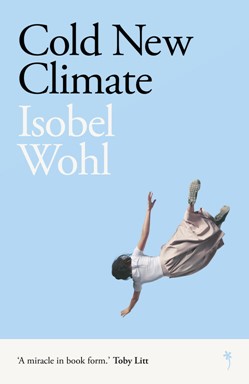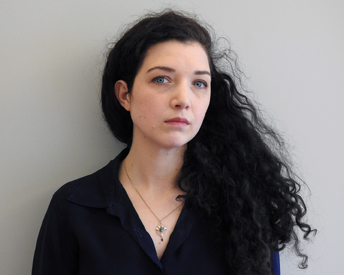Cold New Climate

Lydia is unsettled in her New York life. She takes herself away to Greece, secure in the belief that her much-older partner Tom will be there on her return. However, when she comes back, she discovers he’s fallen in love with someone else. Her life now in disarray, Lydia faces a future in which nothing is secure. When she reconnects with Tom’s teenage son Caleb, all three lives are recast in shocking and devastating ways.
All the while we sense that in the world at large there are greater changes happening, changes over which they have even less control.
Isobel Wohl’s precise, brilliant, hyper-observant prose lays bare the ever-changing rules by which we try to conduct our lives, and in its astonishing conclusion, the novel asks us its most profound question: how do we want to live?
‘Cold New Climate is a lithe and ambitious debut, from an exciting new voice.’ Claire-Louise Bennett
‘Cold New Climate is a novel that is unafraid and uncompromising, tackling both personal and global catastrophe, in a voice as clear as a bell. I was engrossed from the very start.’ Katherine Angel
‘A surprising, startling reading experience, Cold New Climate is marvellously attuned to the complexities of the personal and political. Isobel Wohl’s writing is nuanced, super-observant and, perhaps best of all, totally propulsive.’ Wendy Erskine
‘Cold New Climate is a dark and disturbing love story, beautifully crafted and elegantly written.’ Sam Mills
‘Cold New Climate is a miracle in book form. Stylish but true, oblique but heartbreaking - it's a novel people will be reading and falling in love with and re-reading for many years to come. Clarice Lispector, Jean Rhys, F. Scott Fitzgerald - this is the quality of the company Isobel Wohl is keeping.’ Toby Litt
‘Wohl keeps us right in the grey area. It is this that makes her novel so exceptionally good; as readers, we remain on the verge, never allowed to settle into a position of moral condemnation or absolution. (…) The writing is beautifully delicate, an antiseptic clarity instilled in each sentence’ – Times Literary Supplement

